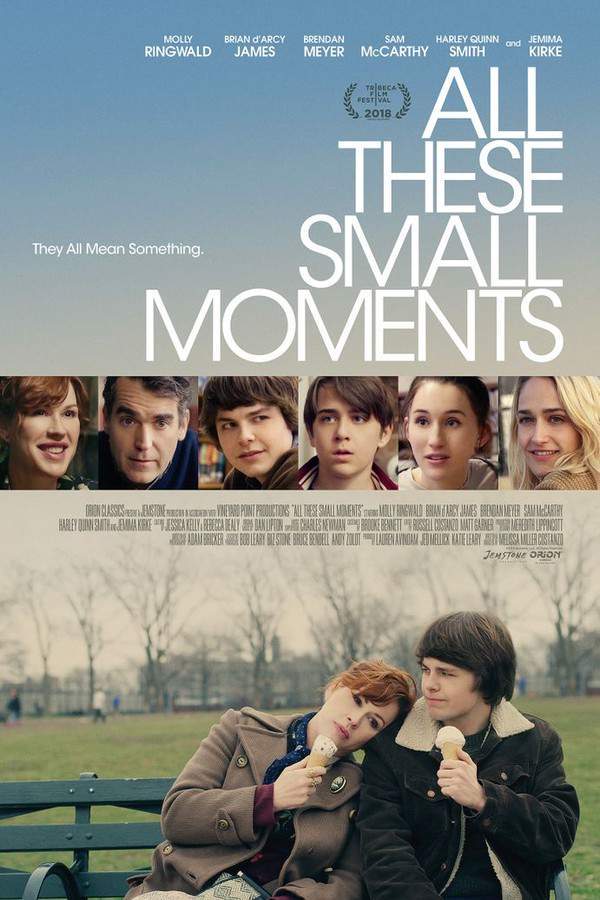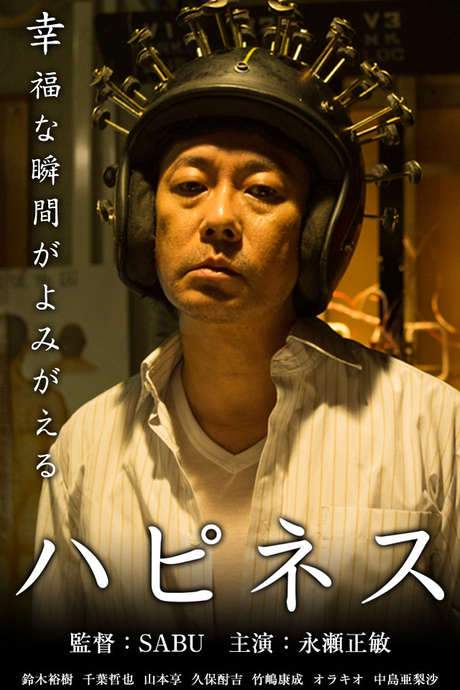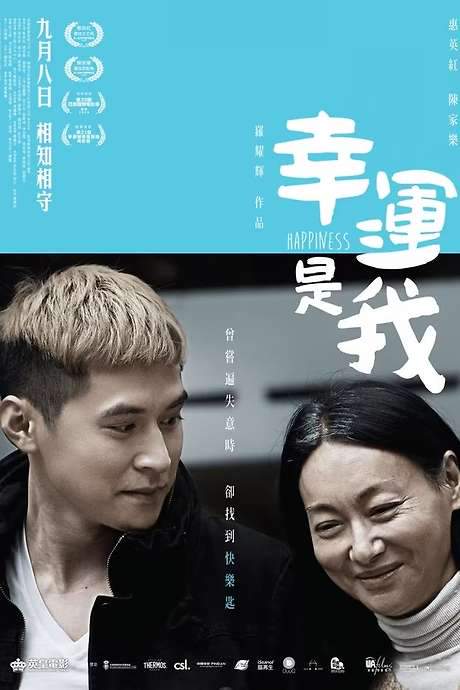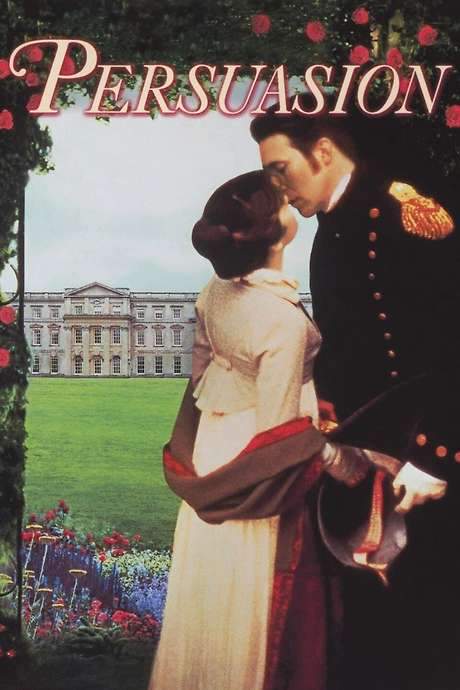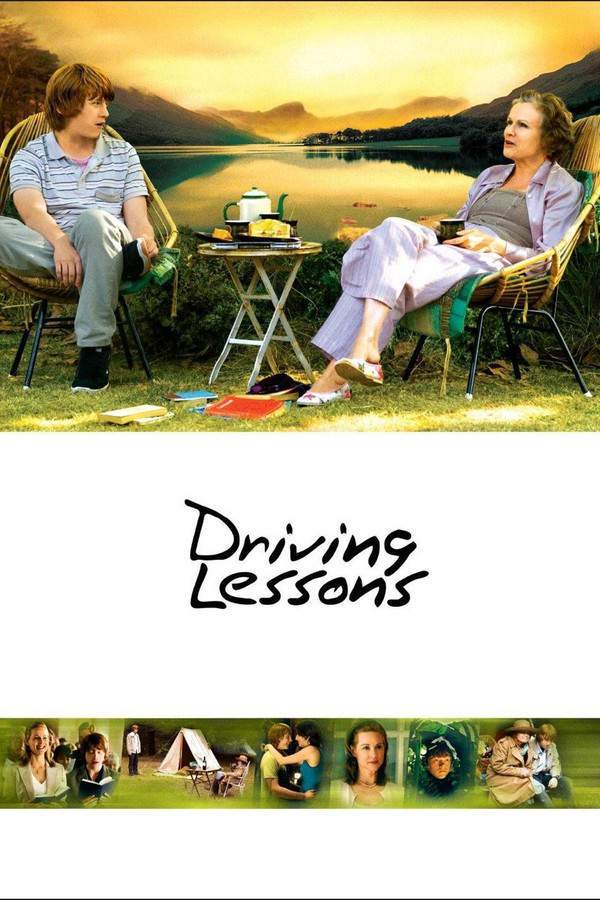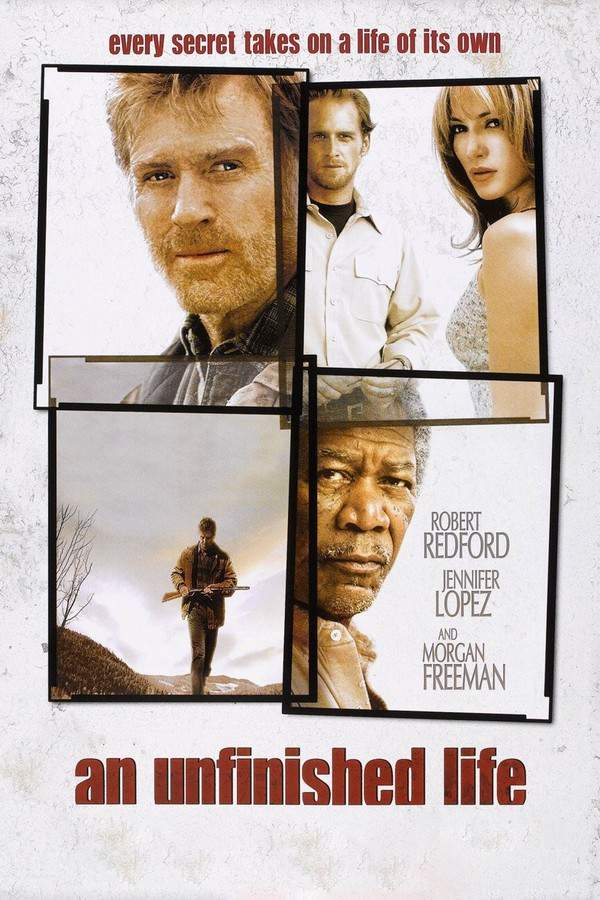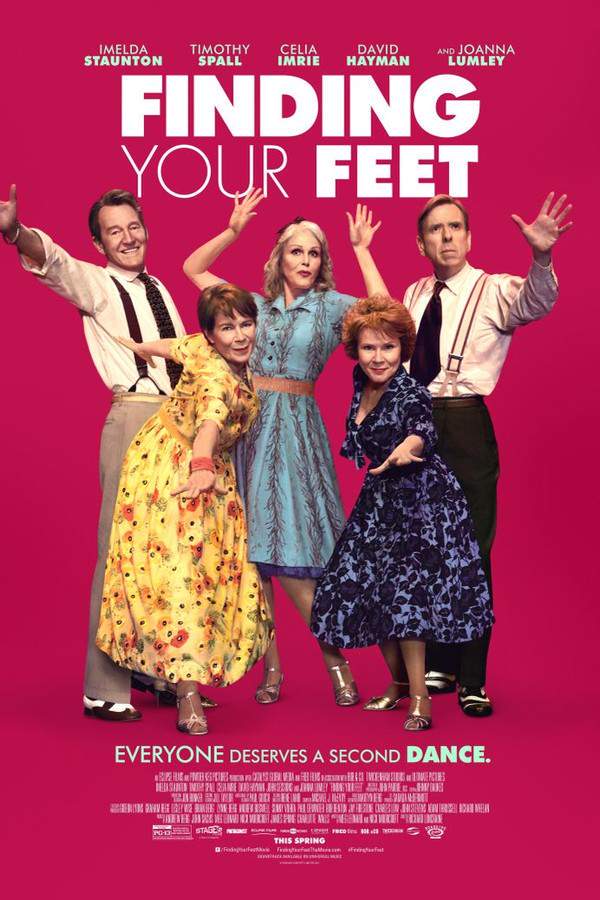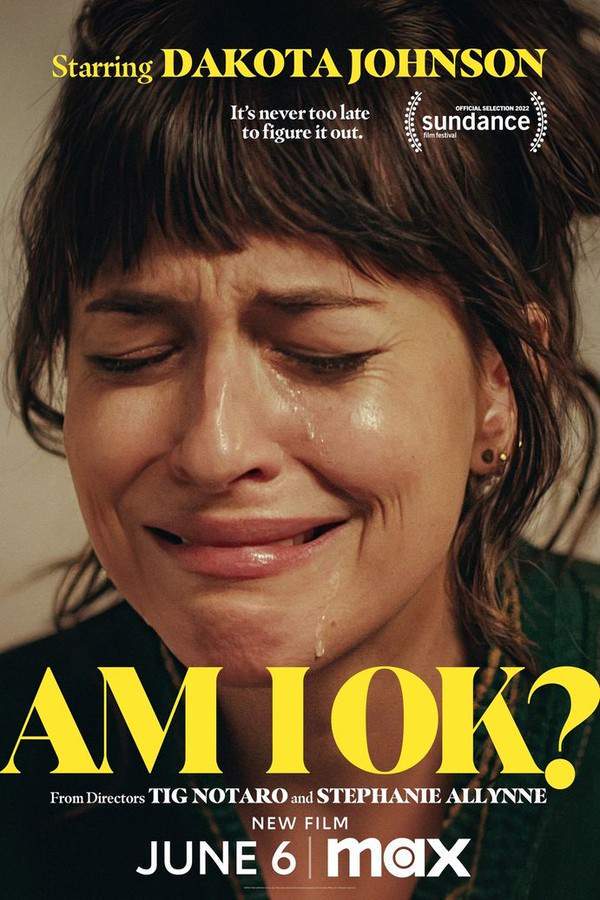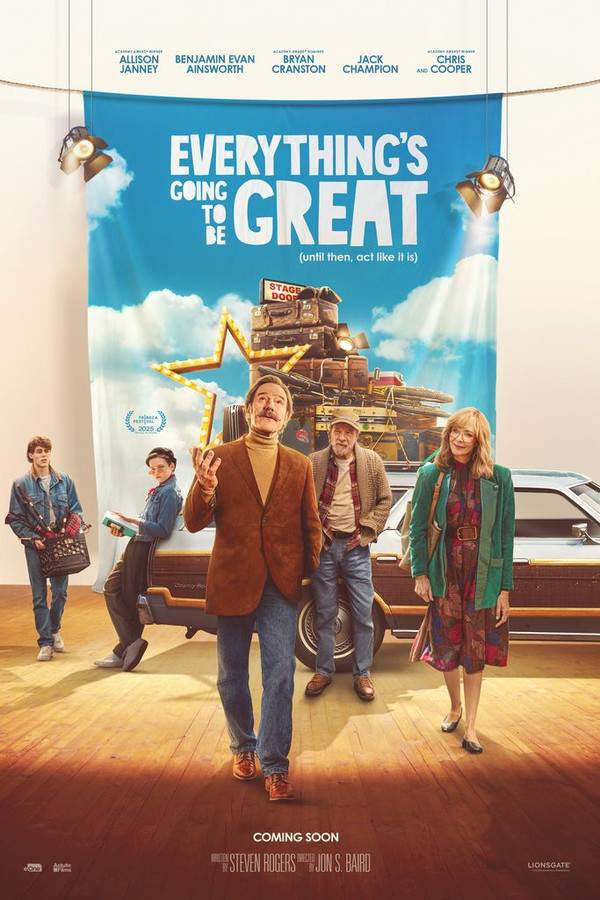
Tiger Theory
Year: 2016
Runtime: 107 mins
Language: Czech
Director: Radek Bajgar
Jan grapples with a life feeling increasingly out of his control, triggered by the voluntary death of his father-in-law and his wife Olga's similar resignation. Haunted by memories of a past filled with dreams and independence, he yearns to regain dignity and freedom. The film explores Jan’s desire to escape his current circumstances, interwoven with the stories of his married daughters, Olinka and Alenka, and their husbands, Erik and Pepík, revealing a complex family dynamic.
Warning: spoilers below!
Haven’t seen Tiger Theory yet? This summary contains major spoilers. Bookmark the page, watch the movie, and come back for the full breakdown. If you're ready, scroll on and relive the story!
Tiger Theory (2016) – Full Plot Summary & Ending Explained
Read the complete plot breakdown of Tiger Theory (2016), including all key story events, major twists, and the ending explained in detail. Discover what really happened—and what it all means.
Jan Berger Jiří Bartoška, a veterinarian, lives under the quiet tyranny of his wife Olga Eliška Balzerová. When Olga’s father ends his life voluntarily, Jan realizes that his father-in-law’s life was controlled the same way as his own, and he fears he could end up the same. This sobering moment sets the stage for a quiet, intimate look at power, affection, and the pursuit of autonomy within a family that believes it knows what is best for everyone.
To gain a measure of freedom, Jan pretends to suffer from Alzheimer’s disease and is admitted to a psychiatric hospital headed by a friend who grants him a surprising amount of latitude. In this guarded exile, Jan begins to see how much of his life has been steered by others, and the respite offered by the hospital becomes a crucible where he tests what he truly wants.
Only Jan’s son Jakub Jakub Kohák and his son-in-law Erik Ondřej Malý know the truth about his situation. Erik is married to Jan’s daughter Olinka Tatiana Dyková, a relationship that becomes a focal point as the family dynamics unfold. Olga, and her mother, push to shape Erik’s life in the same way they have shaped Jan’s, maintaining a grip over decisions and freedoms that affects everyone around them. The tension between control and space sits at the heart of the family’s conflicts, and the film steadily charts how power can be exercised through everyday choices as much as through outright manipulation.
Pepík, meanwhile, is happily married to Alena Pavla Beretová, a contrast to the other women in the family. Alena’s easygoing approach to life and her capacity to give Pepík room to breathe highlight the film’s quiet meditation on personal boundaries. The couple’s happiness stands as a counterpoint to the rigidity that pervades parts of the extended family, underscoring the value of consent and personal space in relationships, even when external pressures push in from all sides.
Erik and Jakub begin secretly meeting Jan on weekends, stealing moments of connection that keep the old man grounded. Their treks to the hospital are not just visits; they become lifelines, reminders of the ties that keep a family from dissolving entirely. The women grow suspicious, and Olinka responds by installing an app on Erik’s phone that shares his coordinates with her, turning trust into surveillance and setting the stage for a dramatic reckoning that will redefine everyone’s place in the family.
The emotional needle of the story threads toward a turning point when the truth comes to light and Jan makes the decision to return home. Erik reacts with anger and leaves, while Olinka begins to see the consequences of her family’s controlling habits. She witnesses Jan’s candid confession about forty years of manipulation and comes to recognize the harm caused by trying to script another person’s life. This awakening also comes with a personal revelation as she observes Pepík and Alena’s happiness, which further influences her perspective on freedom and happiness.
Ultimately, Jan decides to divorce Olga and moves out, a choice that signals a hopeful shift in the family’s dynamics. Olinka helps by providing him with a houseboat that once belonged to Olga’s father, ensuring he has a secure place to live and a sense of independence. This gesture helps repair her relationship with Erik, who begins to see a future where his own life can be lived on his terms rather than under the weight of others’ expectations.
Olga, for her part, delivers a sharp lecture about divorced men being unable to be happy while divorced women can still enjoy life, a moment that exposes the irony of appearance versus reality. The film closes with a tender tableau: Jan, now free to enjoy time with Erik and Olinka, raises a toast to Jan’s father-in-law, a small but meaningful gesture that underscores the film’s core message—that true happiness often comes from choosing one’s own path and nurturing the relationships that matter most.
Last Updated: October 03, 2025 at 06:47
Explore Movie Threads
Discover curated groups of movies connected by mood, themes, and story style. Browse collections built around emotion, atmosphere, and narrative focus to easily find films that match what you feel like watching right now.
Movies about quiet family tension like Tiger Theory
Stories where the real conflict is the slow suffocation of family life.If you liked the complex family dynamics and emotional control in Tiger Theory, explore these movies about quiet family tension. These similar dramas focus on psychological manipulation within domestic life, offering a slow-burn, introspective look at relationships.
Narrative Summary
Narratives in this thread typically unfold within the confines of a home or family unit, focusing on the psychological toll of long-standing control and manipulation. Characters often experience a gradual awakening, leading to a struggle for autonomy against a backdrop of resigned acceptance from others. The conflict is internal and relational, building slowly towards a moment of reckoning or escape.
Why These Movies?
These movies are grouped together because they share a specific mood of quiet, domestic unease and a thematic focus on control within intimate relationships. They prioritize character introspection over plot, using a slow pace to let tension simmer, and often balance heavy themes with a glimmer of hope or bittersweet resolution.
Movies about reclaiming personal freedom like Tiger Theory
Character-driven stories about breaking free from lifelong constraints.For viewers who enjoyed Jan's quest for dignity in Tiger Theory, these movies about reclaiming personal freedom feature similar journeys. These character-driven stories show individuals breaking free from oppressive life patterns, often with a bittersweet but ultimately hopeful conclusion.
Narrative Summary
The narrative pattern follows a protagonist who feels trapped by their life—be it a job, a relationship, or societal expectations—and decides to make a change. The journey is internal and emotional, involving reflection on the past and courage for the future. The ending is typically hopeful but tempered with loss, resulting in a bittersweet victory that feels earned and realistic.
Why These Movies?
These films are connected by a core character arc of liberation and self-discovery. They share a specific emotional mix: the sadness of what is lost combined with the hope of what is gained. The pacing is often deliberate, allowing the weight of the character's decision to resonate, and the intensity comes from personal crisis rather than external danger.
Unlock the Full Story of Tiger Theory
Don't stop at just watching — explore Tiger Theory in full detail. From the complete plot summary and scene-by-scene timeline to character breakdowns, thematic analysis, and a deep dive into the ending — every page helps you truly understand what Tiger Theory is all about. Plus, discover what's next after the movie.
Tiger Theory Timeline
Track the full timeline of Tiger Theory with every major event arranged chronologically. Perfect for decoding non-linear storytelling, flashbacks, or parallel narratives with a clear scene-by-scene breakdown.

Characters, Settings & Themes in Tiger Theory
Discover the characters, locations, and core themes that shape Tiger Theory. Get insights into symbolic elements, setting significance, and deeper narrative meaning — ideal for thematic analysis and movie breakdowns.

Tiger Theory Spoiler-Free Summary
Get a quick, spoiler-free overview of Tiger Theory that covers the main plot points and key details without revealing any major twists or spoilers. Perfect for those who want to know what to expect before diving in.

More About Tiger Theory
Visit What's After the Movie to explore more about Tiger Theory: box office results, cast and crew info, production details, post-credit scenes, and external links — all in one place for movie fans and researchers.


